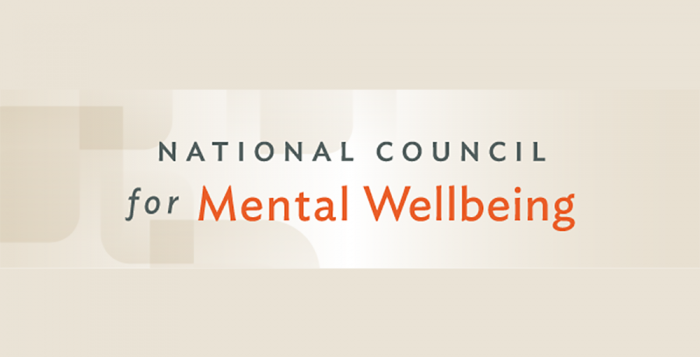NOW AVAILABLE: Resource for Communicating With Individuals Who Are Blind or Have a Vision Impairment
The Office of Developmental Programs (ODP) is happy to announce a new resource: “Communicating with Individuals who are Blind or have a Vision Impairment.” This resource provides some basic information on vision, the most common eye disorders, and how they impact a person’s vision, as well as strategies for effective communication when supporting these individuals.
The key to achieving effective communication with a person with vision impairment is to consciously accept the responsibility for it. How an individual is impacted will vary and communication access depends on individual needs, looking different for each person. ODP hopes this resource will provide valuable information on communicating and supporting individuals with a visual impairment. Please contact the ODP Special Populations Unit with any questions.
Immigration Enforcement Advisory for Health Care and Social Services Facilities
Message from the PA Department of Human Services (DHS):
Under the current federal administration, the U.S. Department of Homeland Security (U.S. DHS) has lifted restrictions that previously prohibited Immigration and Customs Enforcement (ICE) and Customs and Border Protection (CBP) officers from carrying out immigration enforcement actions, including arrests, in protected areas such as medical and behavioral health care facilities and social services establishments. It is now possible that U.S. DHS may attempt to conduct immigration enforcement activities in these settings.
The Pennsylvania Department of Human Services, along with the departments of Aging, Drug and Alcohol Programs, and Health, has prepared a non-regulatory advisory to provide general information about federal law applicable to immigration enforcement activities at health care and social services facilities. We also advise facility leadership and counsel to develop a written policy and standard operating procedures for what to do if immigration enforcement agents arrive on facility property or seek information about individuals you serve for immigration enforcement reasons.
In developing these policies and procedures, the Pennsylvania Department of Human Services advises that you consider:
- Designating legal and administrative point person(s) by name and phone number who will interact with immigration agents and review legal documents;
- Planning for how your facility will respond to requests for information, requests to enter non-public spaces to conduct an arrest, and immigration enforcement activity in public spaces;
- Engaging in advance with stakeholders and necessary resources; and
- Minimizing disruption to individuals served.
This advisory does not provide legal advice. Consult a licensed attorney or accredited representative for legal questions about a specific situation.
Thank you for your service to Pennsylvania.
National Council Shares Overview of Survey on HR 1 Impacts
March 2026 LTSS Subcommittee Agenda and Meeting Link Released
The Office of Long-Term Living (OLTL) has released the agenda and call information for the March 11, 2026, Long-Term Services and Supports (LTSS) Subcommittee meeting. This meeting will be held via webinar/remote streaming only from 10:00 am – 1:00 pm.
Some of the agenda topics include an update from OLTL, presentations from the Community HealthChoices Managed Care Organizations (CHC-MCO) on assisted living in lieu of services option, and personal assistance services (PAS) reductions and time allocated to public comments.
Comments and questions for this meeting should be sent via email.
The conference line for the meeting is:
Bridge Number: 1 (562) 247-8321 PIN: 132-269-143#
For additional information about this meeting, visit the LTSS Subcommittee website.
Harrisburg Area Transportation Study (HATS) Shares Capital Region Mobility Plan Survey
DHS Releases 2026/27 Blue Book; RCPA Shares Divisional Analysis
Justice in Aging Shares Fact Sheet on Impact of HR1 on Older Immigrants’ Access to Health Care

IPRC Announces Webinar Series on Sexuality and Disability in Pediatrics
An Overview of Sexuality & Disability in Pediatrics
Tuesday, March 17, 2026
12:00 pm – 1:00 pm EST; 11:00 am – 12:00 pm CST;
10:00 am – 11:00 am MST; 9:00 am – 10:00 am PST
Register Here
A Discipline Specific Approach to Sexuality & Disability in Pediatrics
Tuesday, March 24, 2026
12:00 pm – 1:00 pm EST; 11:00 am – 12:00 pm CST;
10:00 am – 11:00 am MST; 9:00 am – 10:00 am PST
Register Here
Presenters:
Amanda Appel, MD, MPH (Pediatric Rehabilitation Medicine)
Amanda Chestnut, MS, OTR/L, BCP (Occupational Therapy)
Alison Colbert, PhD (Neuropsychology)
Caroline Freer, CCC-SLP (Speech Therapy)
Carolyn Kelley, DPT, PCS (Physical Therapy)
Ann Lantagne, PhD (Rehab Psychology)
Christine Petranovich, PhD (Neuropsychology)
Led by Amanda Appel, MD, MPH, a pediatric rehabilitation medicine physician at Children’s Hospital Colorado, this engaging team will discuss the multi-disciplinary facets of discussing sexuality with children with disabilities.
Objectives — Part 1: At the end of this session, the learner will:
- Understand disparities in reproductive health care and sexual health education for individuals with disabilities;
- Understand the importance of addressing reproductive health and sexual dysfunction for patients with disabilities; and
- Apply the information and feel empowered to start conversations with patients and their families about sex.
Objectives — Part 2: At the end of this session, the learner will:
- Have an increased awareness of sexuality as a component of holistic care;
- Understand discipline-specific considerations related to sexuality and disability;
- Learn practical guidance to promote interdisciplinary collaboration; and
- Apply the information and feel empowered to start conversations with patients and their families about sex.
Audience: This webinar is intended for all interested members of the rehabilitation team.
Level: Beginner-Intermediate
Certificate of Attendance: Certificates of attendance are available for all attendees. No CEs are provided for this course.
Complimentary webinars are a benefit of membership in IPRC/RCPA. Registration fee for non-members is $179. Not a member yet? Consider joining today.
FDA Issues Alert for Medline Updated Instructions for Use With Homecare Beds
The Office of Developmental Programs (ODP) has shared this important announcement from the U.S. Food and Drug Administration (FDA) “FDA MedWatch – Medline Updates Instructions for Use for Homecare Beds.”
This recall involves updating instructions for using devices and does not involve removing them from where they are used or sold. The FDA has identified this recall as the most serious type. This device may cause serious injury or death if you continue to use it without following the updated instructions.
What to Do:
Customers have reported incidents of hand control pendants burning, overheating, melting, sparking, causing electrical shock, and catching on fire only for the Medline Basic Beds identified in the alert. Such incidents pose significant risks, including serious injury and death. The FDA is recommending affected beds be left unplugged from wall power unless adjustments that require electricity need to be made.
For Medline Basic Beds and Medlite Homecare Beds identified, only use accessories intended for use with Medline Homecare Beds.
On November 26, Medline sent all affected customers a letter recommending the following actions:
- To mitigate risk during use, strictly adhere to usage guidelines and safety instructions provided with the product as well as the following instructions:
- Do not operate bed above the specified weight limit.
- Ensure none of the bed components are jammed.
- Ensure that there is no obstruction to the movement of the bed.
- Hang the pendant on headboard or footboard when not in use.
- Do not store the pendant on mattress at any time, including while asleep.
- Unplug the bed and call for service if any of the following occur:
- Bed motors appear to be jammed, stalled, or malfunctioning;
- The bed pendant controls aren’t working;
- Pendant wiring is damaged;
- Pendant becomes hot to the touch; and/or
- Smoke, sparking, or other unsafe electrical conditions occur.
- Only use Medline side rails and Medline accessories that are intended for use with Medline Homecare Beds. When using Medline side rails and Medline accessories, follow all applicable instructions for use.
- Do not use non-Medline side rails or non-Medline accessories, including extension cords, with Medline Homecare Beds. The following Medline Side Rail SKUs are compatible with both the Basic Homecare Beds and the Medlite Homecare Beds:
- MDS89697 (Clamp-On Half Rail)
- MDS89698N (Spring Loaded Half Rail)
- MDS89694N (Spring Loaded Full Rail)
- MDS89695N (Economy Full Rail)
Reason for Correction:
Medline has identified electrical safety risks with its Medline Basic Homecare Beds that may lead to fire.
The electrical safety risk is a potential hazard involving the hand control pendant and associated wires for Medline Basic Homecare Beds, SKUs MDR107002E, MDR107002E-4, MDR107003E, MDR107003E-4, and MDR107003ELO. In certain scenarios — such as operating the bed above its specified weight limit, encountering an obstruction to bed movement, or experiencing jammed components/motor, among other potential conditions — the hand pendant and pendant cords may overheat and, in some instances, pose a risk of fire. Medline Industries has received reports of pendants sparking, burning, melting, smoking, and catching on fire.
As of December 18, Medline has reported 12 injuries and one death associated with this issue.
Additionally, Medline has identified patient entrapment as a potential issue when using non-Medline accessories on Medline beds. Non-Medline accessories or a user error when handling the pendant can unintentionally cause the bed to adjust position, entrapping the user’s body between the bed and the accessory. Entrapment could lead to asphyxiation, serious injury, and death. Patients with reduced monitoring, such as those at home, are at increased risk due to delays in detecting and responding to entrapment incidents.
As of December 18, Medline has reported two injuries and one death associated with the use of non-Medline approved accessories.
Device Use:
An AC-powered adjustable hospital bed is a device intended for medical purposes that consists of a bed with a built-in electric motor and remote controls that can be operated by the patient to adjust the height and surface contour of the bed. Hospital beds include side rails that can be latched on or off and moved around.
Contact Information:
Customers in the U.S. with adverse reactions, quality problems, or questions about this recall should contact Medline Industries at 866-359-1704 or via email.
For additional information and specific models affected, visit the FDA’s website.


























